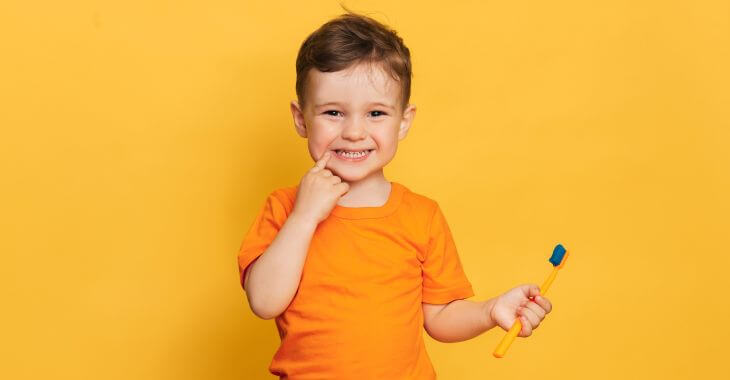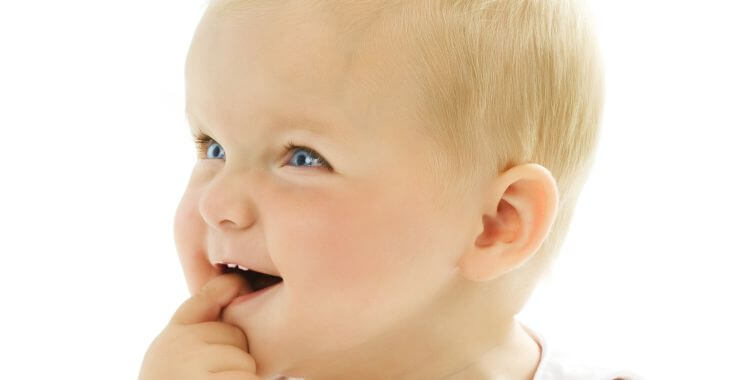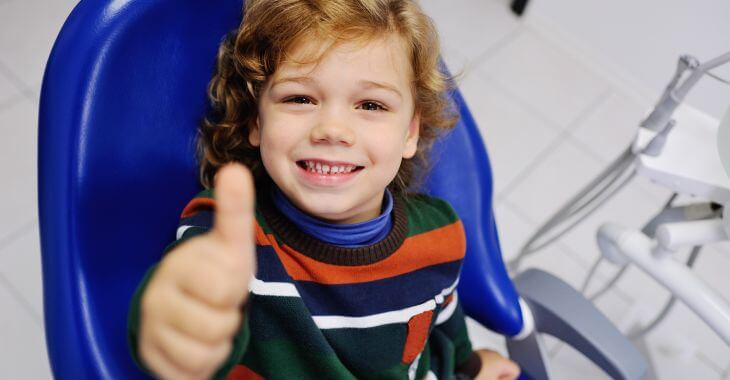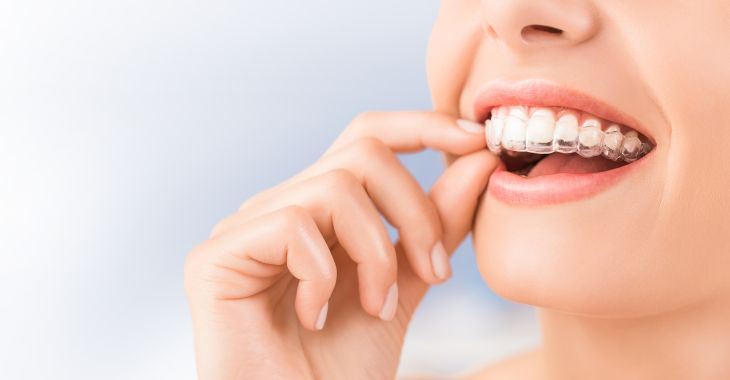Solutions for Baby Grinding Teeth

Bruxism, or teeth grinding, can cause serious harm to the teeth and jaw, and even infants can grind their teeth. If you have a baby grinding teeth, you may wonder why this is occurring and how to stop this behavior. There are ways to stop teeth grinding to protect your child’s beautiful smile.
Why Is My Baby Grinding Its Teeth?
Bruxism can occur in infants, kids, teens and adults. It is not always known why this behavior occurs – it can be due to uneven teeth, stress or tooth pain. If you have noticed your infant shifting their jaw back and forth, you may wonder, “Why is my baby grinding its teeth and is it normal?”
It is very common for baby grinding teeth problems to occur. The new teeth emerging are new to your baby and they are exploring their new teeth. Unlike older children, teens and adults, bruxism is usually due to physical changes for babies, not stress or emotional reasons.
While your baby cannot tell you why he or she is grinding their teeth, it is likely that it is related to teething. He may be trying out his new teeth or grinding may provide pain relief for your child. In most cases, baby teeth grinding stops on its own once the infant stops teething.
How To Stop a Baby from Grinding Teeth
While most infants will eventually overcome bruxism, you may want to curb this behavior if it seems excessive. If you want to know how to stop a baby from grinding teeth, start with providing teething options. If the baby has a teething device, they are more likely to bite on it than grind their teeth.
Teething toys come in many shapes and materials and are an excellent way to stop baby teeth grinding. Choose from plastic (BPA-free), wood, ice teethers and silicone options that can let your baby gnaw while preventing them from grinding their teeth against each other.
When your baby has something clean and comfortable to chew on, you will likely notice a reduction in teeth grinding. Even a wet or frozen washcloth can offer relief for babies that feel the need to chew or bite down as their new teeth are emerging.
When Does Infant Teeth Grinding End?
Most infants receive their first tooth between 4-7 months old and continue receiving about two teeth every four months until around age two. This means they will be teething for the first two years of their life and may continue to grind their teeth during this time.
As your child receives more teeth, there is a greater danger of tooth damage from bruxism. Keeping a teething option available can reduce the tooth-on-tooth damage that can occur with bruxism. However, if your baby continues to grind their teeth as they become older, it may be time to talk to your dentist.
Schedule Baby’s First Dental Visit
If you are still concerned about your baby grinding their teeth, it may be time to talk to a dental expert. It is recommended that all infants see a dentist, preferably a pediatric dentist, once their first tooth arrives. You will want to schedule your baby’s first dental visit before they turn one year of age.
During your baby’s first dental visit, the dentist will examine your child’s tooth development. They will examine the mouth and ensure that the new teeth are emerging correctly. Your dentist can give you advice on teething and baby teeth grinding, and when you should consider bruxism treatment.
Most children stop grinding their teeth on their own, but it can follow them into their teen or adult years. Once the permanent teeth begin to arrive, it is important to protect these teeth from grinding damage. Treatment for older children, teens and adults include wearing a nightguard for bruxism.
Complications from Childhood Bruxism
While most young children will stop teeth grinding naturally, there are kids that continue to gnash their teeth together and it could continue as they grow up. This can be a concern for parents, especially if jaw clenching or teeth grinding begins damaging permanent teeth. Complications can include:
- Tooth fractures
- Jaw pain
- Lost enamel
- Chances in tooth shape
- Tooth decay
- TMJ disorders
Considering the cost of dental care, you want to help your child protect their valuable smile. Finding solutions like wearing a nightguard while sleeping and curbing daytime jaw clenching with behavioral changes can help prevent serious dental damage from childhood bruxism.

Protect Your Baby’s Smile from Teeth Grinding
When it comes to baby teeth grinding, most parents have nothing to worry about. Most young children will stop this behavior as they stop teething and promoting teethers can help minimize damage. To learn more about how to stop baby from grinding teeth, visit your local dentist to discuss the best way to protect your baby’s smile.
The information provided on this website, including text, graphics, images, and other materials, is intended solely for informational purposes and should not be used as a substitute for professional medical advice, diagnosis, or treatment.




)